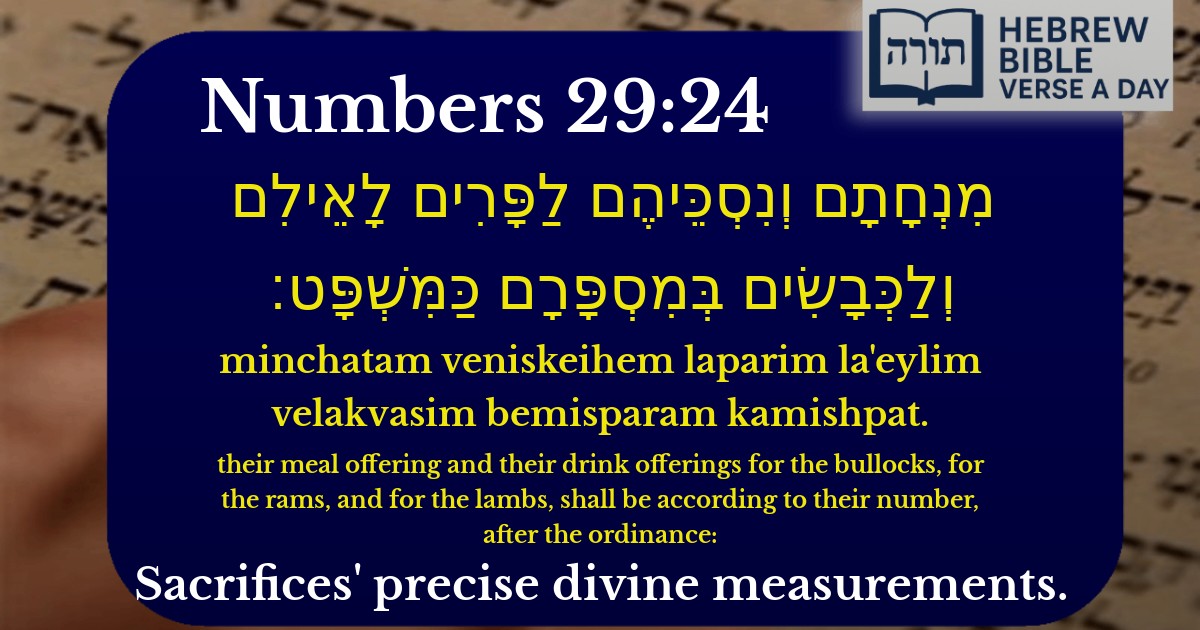Frequently Asked Questions
Q: What does Numbers 29:24 mean?
A: Numbers 29:24 discusses the meal offerings (mincha) and drink offerings (nesachim) brought in the Temple along with animal sacrifices (bullocks, rams, and lambs) during the festival of Sukkot. The verse emphasizes that these offerings must be given in precise quantities 'according to their number, after the ordinance,' meaning they follow the detailed laws given in the Torah (Rashi, Bamidbar 29:24).
Q: Why is this verse important?
A: This verse is important because it highlights the meticulousness required in serving Hashem, especially in the Temple service. The Torah specifies exact measurements for offerings to teach us the value of precision, order, and devotion in fulfilling mitzvot (Rambam, Hilchos Maaseh HaKorbanos 2:1). Even though we no longer bring sacrifices today, the principle applies to prayer and other mitzvot performed with care.
Q: What can we learn from Numbers 29:24 today?
A: We learn that serving Hashem requires attention to detail and commitment to following halacha (Jewish law) correctly. Just as the meal and drink offerings had to match the number of animals sacrificed, we must ensure our mitzvot—such as prayer, tzedakah, or Torah study—are done properly and with the right intentions (Talmud, Menachos 110a).
Q: How does this verse relate to Sukkot?
A: Numbers 29:24 is part of the Torah's description of the additional sacrifices (musafim) brought on Sukkot. Each day of Sukkot had a specific number of animal offerings, along with their accompanying meal and drink offerings. This teaches us the importance of celebrating festivals with both physical and spiritual offerings, elevating the holiday through divine service (Midrash Rabbah, Bamidbar 21:25).


Context of the Verse
The verse (Bamidbar 29:18) appears in the context of the additional offerings (מוּסָפִין) brought during the festival of Sukkot. It specifies the meal offerings (מִנְחָה) and drink offerings (נֶסֶךְ) that accompany the animal sacrifices—bullocks, rams, and lambs—according to their prescribed quantities.
Explanation of the Terms
Halachic Significance
The Talmud (Menachos 90a) discusses the importance of matching the correct meal and drink offerings to their respective sacrifices. A deviation in quantity invalidates the offering. The phrase כַּמִּשְׁפָּט reinforces that these are not arbitrary measures but divinely ordained statutes.
Symbolic Meaning
The Midrash (Bamidbar Rabbah 21:21) suggests that the varying quantities of meal offerings reflect the different spiritual levels of those bringing the sacrifices. The bullock, representing greater atonement (as in the Yom Kippur service), requires a larger offering, symbolizing a more substantial commitment to repentance and divine service.